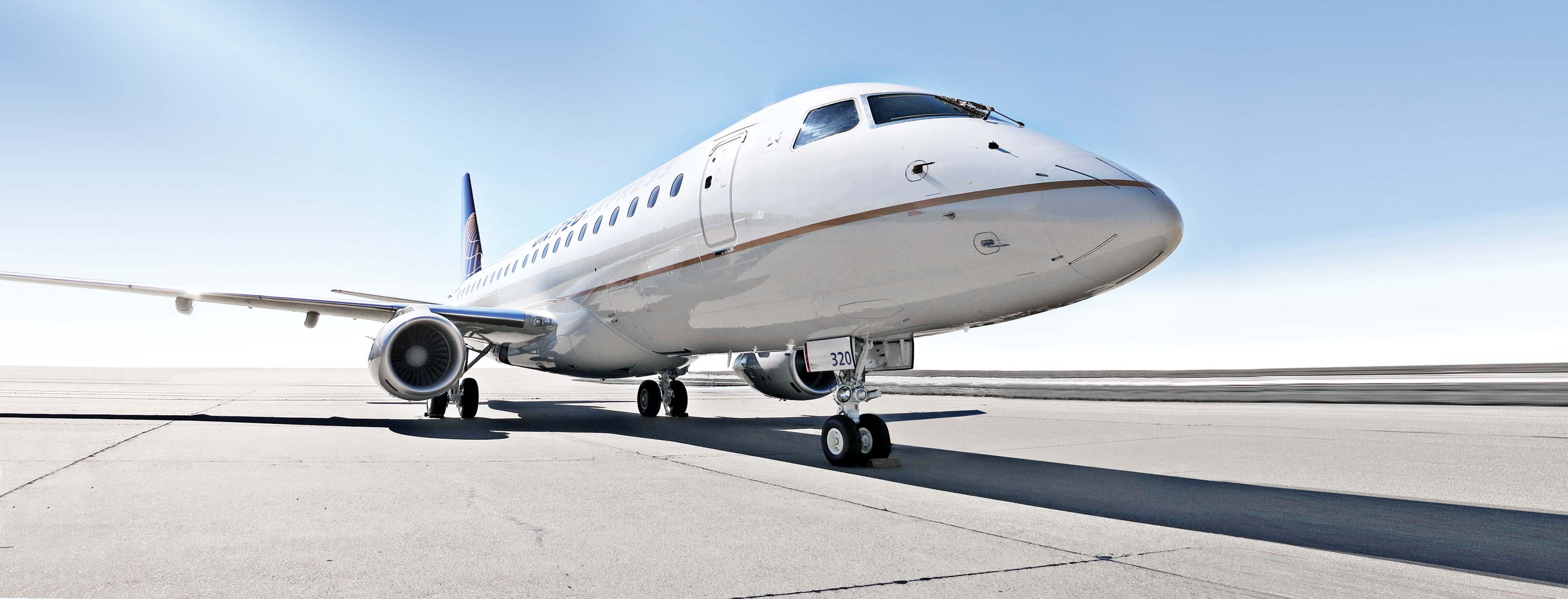 Bombardier Vice President of Marketing Phillipe Poutissou said at the Regional Airline Assn. Annual Convention in Nashville that over 50% of the forecast demand will be for replacement aircraft.
In summarizing his remarks Poutissou projected that demand for new 20-59 seat aircraft will be for 300 valued at $6.5 billion; for 60-99 seats, 5,800 valued at $208.6 billion; and for 100-149 seats, 7,000 valued at $423.7 billion.
"In developing markets, economic growth forecasts are well above the worldwide average, presenting sizable opportunities for new aircraft sales," Poutissou said. "It is anticipated that over the next 20 years, commercial aircraft demand from markets outside North America and Europe will increase considerably. Illustratively, it is forecast that China's fleet of 20-149-seat commercial aircraft will become the third largest, closely behind Europe and the US."
Mr. Poutissou said that "the rising cost and volatility of oil prices" is a major concern for the airline industry, and projected that current levels of jet fuel costs may stay the same moving forward as they are today. "The [fuel cost] environment we've been in the last six months are very similar to what the airlines are going to have to deal with going forward." Poutissou added that this could benefit manufacturers like Bombardier because if fuel prices remain the same "in the long term, the price of oil will drive airlines to accelerate the retirement of older, less efficient aircraft, increasing the demand for new technology, more fuel-efficient aircraft. Operators' shift toward modern aircraft … will also be driven by continuing yield pressure and a global focus on environmental sustainability."
Bombardier Vice President of Marketing Phillipe Poutissou said at the Regional Airline Assn. Annual Convention in Nashville that over 50% of the forecast demand will be for replacement aircraft.
In summarizing his remarks Poutissou projected that demand for new 20-59 seat aircraft will be for 300 valued at $6.5 billion; for 60-99 seats, 5,800 valued at $208.6 billion; and for 100-149 seats, 7,000 valued at $423.7 billion.
"In developing markets, economic growth forecasts are well above the worldwide average, presenting sizable opportunities for new aircraft sales," Poutissou said. "It is anticipated that over the next 20 years, commercial aircraft demand from markets outside North America and Europe will increase considerably. Illustratively, it is forecast that China's fleet of 20-149-seat commercial aircraft will become the third largest, closely behind Europe and the US."
Mr. Poutissou said that "the rising cost and volatility of oil prices" is a major concern for the airline industry, and projected that current levels of jet fuel costs may stay the same moving forward as they are today. "The [fuel cost] environment we've been in the last six months are very similar to what the airlines are going to have to deal with going forward." Poutissou added that this could benefit manufacturers like Bombardier because if fuel prices remain the same "in the long term, the price of oil will drive airlines to accelerate the retirement of older, less efficient aircraft, increasing the demand for new technology, more fuel-efficient aircraft. Operators' shift toward modern aircraft … will also be driven by continuing yield pressure and a global focus on environmental sustainability."
Bombardier Forecasts Demand for 13,100 New Aircraft Through 2030
Published May 25, 2011 on Pilot Jobs
FREE Airline Pilot Career Guide. — Requirements, Pay, Steps and More. Download Now »
Bombardier predicted in its annual Commercial Aircraft Market Forecast released this week that 13,100 new aircraft in the 20-149 seat range will be needed through 2030, which is an increase of 300 units over its previous 20-year forecast. Bombardier reported that the total value of those aircraft is approximately $639 billion.
 Bombardier Vice President of Marketing Phillipe Poutissou said at the Regional Airline Assn. Annual Convention in Nashville that over 50% of the forecast demand will be for replacement aircraft.
In summarizing his remarks Poutissou projected that demand for new 20-59 seat aircraft will be for 300 valued at $6.5 billion; for 60-99 seats, 5,800 valued at $208.6 billion; and for 100-149 seats, 7,000 valued at $423.7 billion.
"In developing markets, economic growth forecasts are well above the worldwide average, presenting sizable opportunities for new aircraft sales," Poutissou said. "It is anticipated that over the next 20 years, commercial aircraft demand from markets outside North America and Europe will increase considerably. Illustratively, it is forecast that China's fleet of 20-149-seat commercial aircraft will become the third largest, closely behind Europe and the US."
Mr. Poutissou said that "the rising cost and volatility of oil prices" is a major concern for the airline industry, and projected that current levels of jet fuel costs may stay the same moving forward as they are today. "The [fuel cost] environment we've been in the last six months are very similar to what the airlines are going to have to deal with going forward." Poutissou added that this could benefit manufacturers like Bombardier because if fuel prices remain the same "in the long term, the price of oil will drive airlines to accelerate the retirement of older, less efficient aircraft, increasing the demand for new technology, more fuel-efficient aircraft. Operators' shift toward modern aircraft … will also be driven by continuing yield pressure and a global focus on environmental sustainability."
Bombardier Vice President of Marketing Phillipe Poutissou said at the Regional Airline Assn. Annual Convention in Nashville that over 50% of the forecast demand will be for replacement aircraft.
In summarizing his remarks Poutissou projected that demand for new 20-59 seat aircraft will be for 300 valued at $6.5 billion; for 60-99 seats, 5,800 valued at $208.6 billion; and for 100-149 seats, 7,000 valued at $423.7 billion.
"In developing markets, economic growth forecasts are well above the worldwide average, presenting sizable opportunities for new aircraft sales," Poutissou said. "It is anticipated that over the next 20 years, commercial aircraft demand from markets outside North America and Europe will increase considerably. Illustratively, it is forecast that China's fleet of 20-149-seat commercial aircraft will become the third largest, closely behind Europe and the US."
Mr. Poutissou said that "the rising cost and volatility of oil prices" is a major concern for the airline industry, and projected that current levels of jet fuel costs may stay the same moving forward as they are today. "The [fuel cost] environment we've been in the last six months are very similar to what the airlines are going to have to deal with going forward." Poutissou added that this could benefit manufacturers like Bombardier because if fuel prices remain the same "in the long term, the price of oil will drive airlines to accelerate the retirement of older, less efficient aircraft, increasing the demand for new technology, more fuel-efficient aircraft. Operators' shift toward modern aircraft … will also be driven by continuing yield pressure and a global focus on environmental sustainability."
 Bombardier Vice President of Marketing Phillipe Poutissou said at the Regional Airline Assn. Annual Convention in Nashville that over 50% of the forecast demand will be for replacement aircraft.
In summarizing his remarks Poutissou projected that demand for new 20-59 seat aircraft will be for 300 valued at $6.5 billion; for 60-99 seats, 5,800 valued at $208.6 billion; and for 100-149 seats, 7,000 valued at $423.7 billion.
"In developing markets, economic growth forecasts are well above the worldwide average, presenting sizable opportunities for new aircraft sales," Poutissou said. "It is anticipated that over the next 20 years, commercial aircraft demand from markets outside North America and Europe will increase considerably. Illustratively, it is forecast that China's fleet of 20-149-seat commercial aircraft will become the third largest, closely behind Europe and the US."
Mr. Poutissou said that "the rising cost and volatility of oil prices" is a major concern for the airline industry, and projected that current levels of jet fuel costs may stay the same moving forward as they are today. "The [fuel cost] environment we've been in the last six months are very similar to what the airlines are going to have to deal with going forward." Poutissou added that this could benefit manufacturers like Bombardier because if fuel prices remain the same "in the long term, the price of oil will drive airlines to accelerate the retirement of older, less efficient aircraft, increasing the demand for new technology, more fuel-efficient aircraft. Operators' shift toward modern aircraft … will also be driven by continuing yield pressure and a global focus on environmental sustainability."
Bombardier Vice President of Marketing Phillipe Poutissou said at the Regional Airline Assn. Annual Convention in Nashville that over 50% of the forecast demand will be for replacement aircraft.
In summarizing his remarks Poutissou projected that demand for new 20-59 seat aircraft will be for 300 valued at $6.5 billion; for 60-99 seats, 5,800 valued at $208.6 billion; and for 100-149 seats, 7,000 valued at $423.7 billion.
"In developing markets, economic growth forecasts are well above the worldwide average, presenting sizable opportunities for new aircraft sales," Poutissou said. "It is anticipated that over the next 20 years, commercial aircraft demand from markets outside North America and Europe will increase considerably. Illustratively, it is forecast that China's fleet of 20-149-seat commercial aircraft will become the third largest, closely behind Europe and the US."
Mr. Poutissou said that "the rising cost and volatility of oil prices" is a major concern for the airline industry, and projected that current levels of jet fuel costs may stay the same moving forward as they are today. "The [fuel cost] environment we've been in the last six months are very similar to what the airlines are going to have to deal with going forward." Poutissou added that this could benefit manufacturers like Bombardier because if fuel prices remain the same "in the long term, the price of oil will drive airlines to accelerate the retirement of older, less efficient aircraft, increasing the demand for new technology, more fuel-efficient aircraft. Operators' shift toward modern aircraft … will also be driven by continuing yield pressure and a global focus on environmental sustainability."

